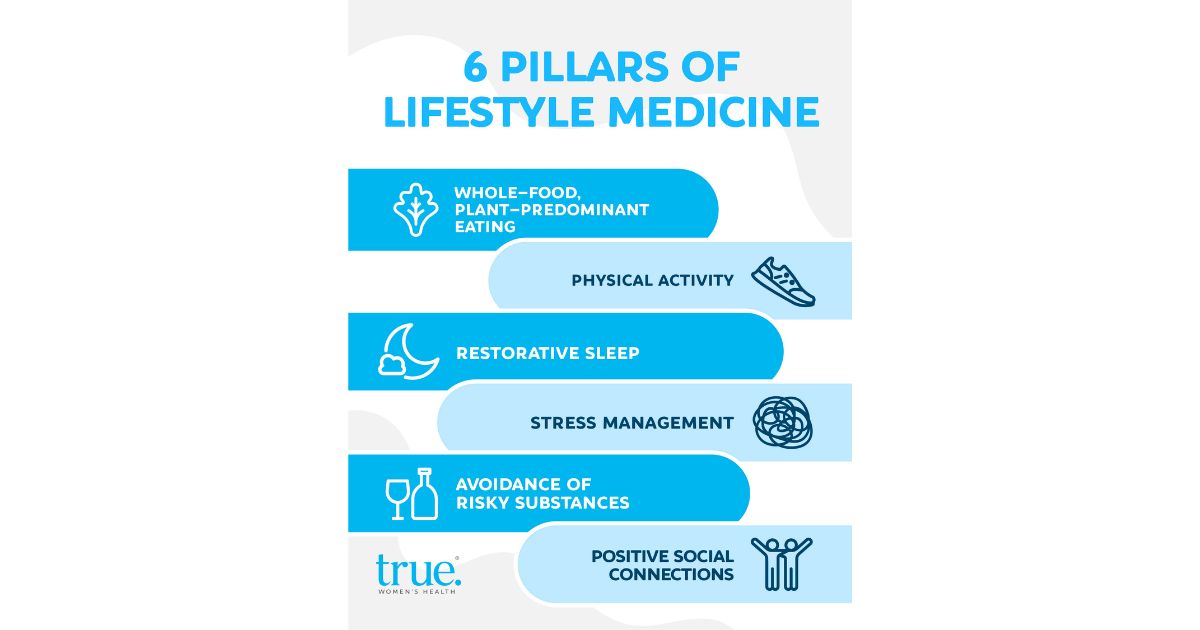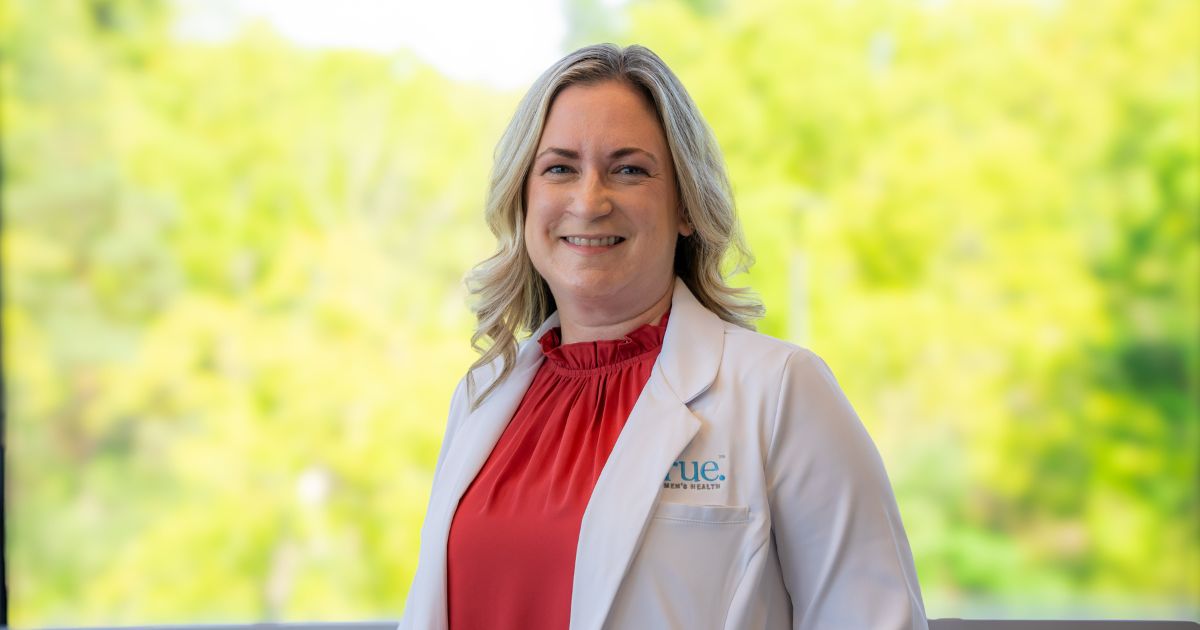Midlife arrives without a warning label.
One day, you're focusing on your career, managing a household, and checking off to-do lists. And the next, your sleep is off, your energy's low, and your jeans don't fit like they used to. Add in hot flashes, brain fog, and mood shifts, and it can feel like your body is changing without your consent!
Like Brené Brown, I call this phase the "Messy Middle." It's that place between who you were and who you're becoming—a season of discomfort, uncertainty, and unexpected transformation.
But here's the truth: this messy middle is where the magic of healing and growth happens. It's an invitation to pause, reflect, and reimagine what health and vitality can look like as you age. As a Lifestyle Medicine physician, I know that science supports what many women intuitively feel: aging well is possible. And it starts with small, sustainable changes to how we live each day.

What Is Lifestyle Medicine?
Lifestyle Medicine is a medical specialty that uses evidence-based lifestyle interventions to prevent, treat, and even reverse chronic disease. It focuses on six key pillars that impact our long-term health outcomes—areas often neglected during midlife, when so many women put themselves last.
These pillars are not about perfection. They're about tuning into your body, building awareness, and creating habits that honor your current season of life. Each plays a vital role in aging well.
1. Nutrition: Fuel for Longevity
Midlife is often when women start to notice changes in metabolism, stubborn belly fat, and energy levels. Nutrition becomes foundational for nourishment, not dieting.
I encourage women to adopt a plant-forward diet rich in fiber, healthy fats, and lean protein. This helps regulate hormones, improve gut health, reduce inflammation, and stabilize blood sugar—all critical for managing menopause symptoms and chronic disease risk.
But it's not about restriction. It's about giving your body what it needs to thrive. Think colorful vegetables, whole grains, nuts, legumes, and omega-3s. Food is information for your cells.
2. Movement: Vitality in Motion
You don't need to run marathons to benefit from movement! In fact, consistent moderate exercise, like brisk walking, strength training, or yoga, can significantly improve cardiovascular health, bone density, mood, and sleep.
Many women feel disconnected from their bodies. Exercise is one of the best ways to rebuild that connection. It's also a powerful tool for managing stress and maintaining cognitive function as we age.
The key is to find movement that feels good and fits your life. The best workout is the one you'll actually do!
3. Sleep: The Great Regenerator
Sleep is the ultimate anti-aging tool, yet it's often the first thing women sacrifice in their busy lives. Hormonal changes during perimenopause and menopause can disrupt sleep cycles with night sweats and insomnia.
Improving sleep hygiene through consistent bedtime routines, reducing screen time, and managing stress can radically transform your energy level and mental clarity.
Don't underestimate the power of quality sleep! It's where your body repairs, hormones reset, and your brain consolidates memory and learning. Sleep is medicine.
4. Stress Management: Resetting the Nervous System
Chronic stress is a silent saboteur of health. It increases cortisol, contributes to belly fat, disrupts hormones, and accelerates aging at a cellular level.
Women are especially prone to caregiver stress. Being "sandwiched" between raising children and caring for aging parents while navigating demanding careers at their peak is no walk in the park.
Stress management doesn't have to look like a silent meditation retreat! It can be simple: breathwork, journaling, walking in nature, setting boundaries, or finding new hobbies. What matters is that you intentionally create space for restoration. Learning to recognize and respond to stress signals is a powerful form of self-care.
5. Substance Use: Choosing Clarity
Alcohol and other substances can easily sneak in as coping mechanisms during midlife. But even moderate alcohol consumption can impact sleep, mood, weight, and increase a woman's cancer risk.
Lifestyle Medicine encourages awareness and informed decision-making. Many women feel empowered when they reduce or eliminate alcohol, gaining clarity, better sleep, and more stable moods.
This isn't about shame—it's about allowing yourself to feel your best and make choices that align with your goals.
6. Social Connection: The Heart of Healthy Aging
Loneliness is one of the most underestimated health risks, with research linking it to heart disease, depression, and even dementia.
Midlife brings shifting relationships. Navigating empty nests, divorce, or caregiving for an aging parent can be challenging. However, it also offers opportunities to cultivate new connections through community groups, hobbies, or supportive healthcare relationships.
At true. Women's Health, we've built an online community to support our members with everything from meal planning and weekly workout routines to coping with menopause symptoms. Having a circle of support is not a luxury—it's a necessity for long-term wellness.
From Surviving to Thriving in the Messy Middle
If you feel like you're unraveling, you are not alone. The Messy Middle is real—but it's also where transformation happens! My goal as a physician is to help women move from frustration to freedom. I won't just treat your symptoms and send you on your way with a prescription. I want to help you understand the "why" and build a sustainable plan for your future.
Aging well isn't about chasing youth. It's about honoring your body, mind, and spirit in every decade. It's about staying curious, being compassionate with yourself, and finding the magic in the middle of the mess.
If that sounds like the kind of care you want, I'd love to see you as my patient.
Learn more at truewomenshealth.com.
Dr. Tricia Mueller, DO, DACLM, is a board-certified Lifestyle Medicine physician at true. Women's Health. She provides primary care in the Complete Wellness Program and helps women navigate midlife, menopause, and weight struggles with personalized care plans, compassionate support, and science-backed strategies.
Courtesy of true. Women's Health.




